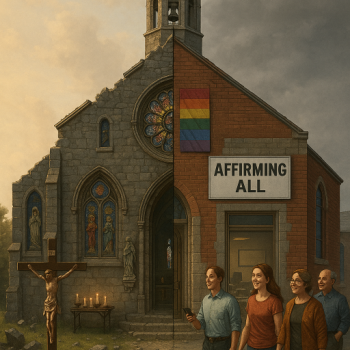Christopher Lane was murdered in cold blood. It was cruel, senseless, and empty. It drew the curtain back on the human capacity for evil.
But what it generated among the talking heads was an angst-ridden, bewildered search for an explanation and a fix. With the help of sociologists and psychologists in short order the press completed a raw sort of the explanations for Christopher's death: video game violence, a lack of strong parenting, the limited cognitive ability of adolescent males, and "the American culture of death" were among the explanations offered by the reporters and their expert witnesses.
By the end of the morning it was clear that there was a rational explanation available and that such behavior could be fixed with the right social choices. The only question that remained was which of the factors identified were really to blame and which social program would forever erase tragedies of this kind—until, of course, it happens again.
This is the bewildered place that we will find ourselves—again and again—until we own the spiritual dimension of life and with it, our potential for darkness. Imagine a world where everyone's family is supportive and healthy; every community is stable; opportunity is plentiful; no one owns weapon or a violent video game; movies are entirely free of violence—and, thanks to who we are, someone will die at the hands of someone else.
The scriptural message that we are sinners and that we need to be saved from ourselves is an unwelcome message. "God is just trying to make us feel badly about ourselves," we complain. That is not, in fact, the reason for describing us as sinners. The purpose of that admonition is to remind us that when we are left to our own devices in a world in which we are our own god, this is the kind of thing that happens.
This is not to suggest that we should not work for healthier families and a healthier society. But it is to suggest that we stop talking about violent crimes as if they can be erased with a bit of good therapy.
Psychiatrist Karl Menninger observed, "In all of the laments and reproaches made by our seers and prophets, one misses any mention of 'sin,' a word which used to be a veritable watchword of prophets." He wrote his book Whatever Became of Sin? so long ago (1973) that there are collectible first editions of it available on-line and Menninger himself died almost twenty-five years ago. But the question he asked remains unaddressed and as long as it remains unanswered we will continue to be bewildered, society will evolve without a moral compass, and parents will mourn the loss of their children.
To coin a phrase used by another therapist in challenging a society that mistakenly defines everything as a therapeutic problem with a therapeutic fix, "How's that working for us?"
8/22/2013 4:00:00 AM





